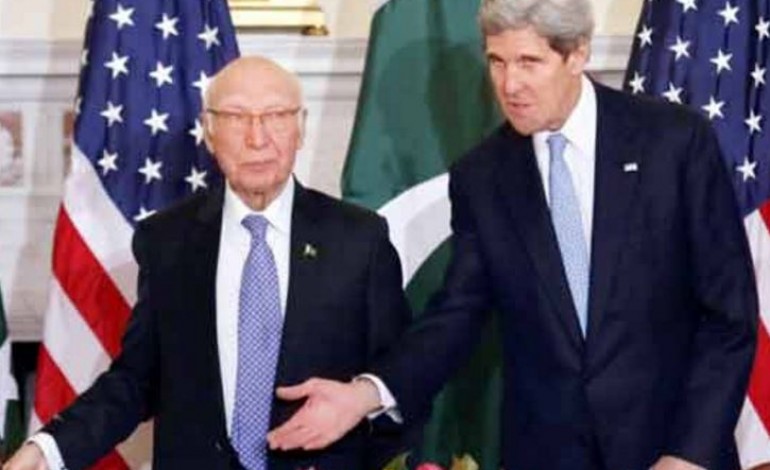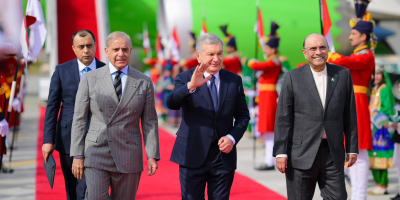Indian bid for NSG foiled due to Pakistan’s diplomatic efforts: Sartaj Aziz

ISLAMABAD: It was Pakistan’s intensive diplomatic lobbying which prevented India from gaining entry into the Nuclear Supplier Group’s (NSG), Adviser to Prime Minister on Foreign Affairs Sartaj Aziz said on Monday.
“Prime Minister Nawaz Sharif personally wrote letters to 17 prime ministers of different countries on the matter, which is on record,” Aziz told senior journalists at the Ministry of Foreign Affairs in Islamabad.
The foreign affairs adviser said security agencies are in the process of compiling more evidence against arrested Indian spy Kulbhushan Jadhav. He added that legal proceedings would begin against Jadhav soon.
The NSG on Thursday failed to reach consensus on India’s membership application after several members of the international nuclear trade cartel insisted on adhering to the Non-Proliferation Treaty (NPT) condition for admission.
The absence of a consensus on the matter proved to be a major diplomatic setback for India and its backers, the US, Japan and some other Western countries, which appeared to be in a hurry to get India admitted to the group.
India and Pakistan are the two non-NPT states aspiring for the membership of the 48-member international nuclear trade cartel.
Earlier this month, Indian External Affairs Minister Sushma Swaraj said India was not opposed to “any country’s entrance into NSG based on merit, including Pakistan”, and was hopeful that India would become a member of the group by the end of the year.
Commenting on the issue of the Afghan Taliban, Aziz acknowledged that the Pakistani government categorises Taliban into ‘good’ and ‘bad’ groups, adding that the government is trying to push ‘good Taliban groups’ for resumption of dialogue.
“In the prevailing situation, the Afghan Taliban do not seem interested in resuming talks,” he said. “The government has taken decisive action against all Taliban groups in tribal areas.”
Aziz was also of the opinion that consultations with the security establishment regarding foreign policy are ‘normal’.
“Consultations with security establishment is a normal thing as United States [too] consult its security establishment in foreign policy matters.”
Related News

US lawmakers accuse Bondi of hiding names of Epstein associates
NEW YORK, FEB 12 /DNA/: A Republican US lawmaker on Wednesday accused Attorney General PamRead More

Uzbek President Mirziyoyev in Islamabad for a two-day state visit
Asnar M Bhatti ISLAMABAD, President of the Republic of Uzbekistan Shavkat Mirziyoyev on Thursday arrivedRead More


Comments are Closed